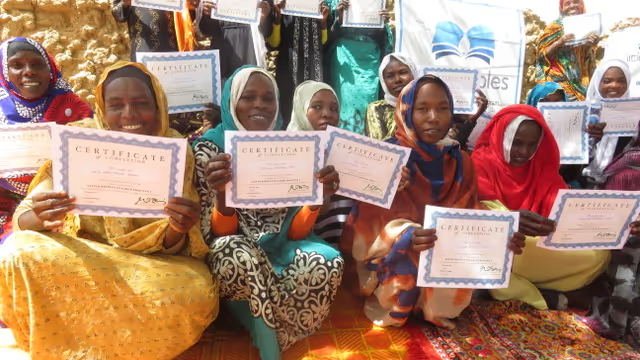Final Report: Little Ripples Refugee-Led Early Childhood Education
Output type
Report
Location
Chad
Focus areas
Mental health and psychosocial support (MHPSS)
Topics
No items found.
Programme
Humanitarian Innovation
Organisations
Jesuit Refugee Service

This report outlines the impact, challenges and learnings of implementing the Little Ripples refugee-led early childhood education programme in the refugee camps of Mile and Kounoungou in eastern Chad.The key achievements of the project have been:
- Maintaining a 100% employee retention rate, with the same staff employed in November 2017 still working as Little Ripples teachers. The capacity of this Little Ripples team has exceeded iACT and JRS expectations. The women have taken on ownership and management of the programme and meet together every month to discuss challenges, learnings, and opportunities.
- The Little Ripples education directors and JRS and iACT staff, and the families hosting Little Ripples Ponds at their homes, are effectively maintaining a clean and safe early learning environment and are upholding their commitment to the programme and space.
- Each Little Ripples Pond has enrolled 45 students, is maintaining a 2:45 teacher to student ratio and 80% attendance rate. Additionally, every child is receiving a daily meal at Little Ripples, six days a week.
- Key child development outcomes have improved among the children who participated in Little Ripples programme from baseline to the final follow-up assessment taken one year after the start of the programme.
- The community has asked that the programme be scaled to reach all children ages three-to-five in their community. Families and community members are providing suggestions and asking for support to carry out income-generating activities that might serve as a means for families to financially contribute to the programme.
Feature Photo: Women who completed Little Ripples teacher training in refugee camp Kounoungou and camp Mile, eastern Chad. Photo Credit: iACT, 2018
No items found.
Attachments
Other resources
explore all resources
Acceptability of urine diversion dry toilets in Dollo Ado refugee camp, Ethiopia
Review of mVAM programme: novel application of mobile technologies for food security monitoring
Lead User Method vs. Innovation Contest – An Empirical Comparison of Two Open Innovation Methodologies for Identifying Social Innovation for Flood Resilience in Indonesia